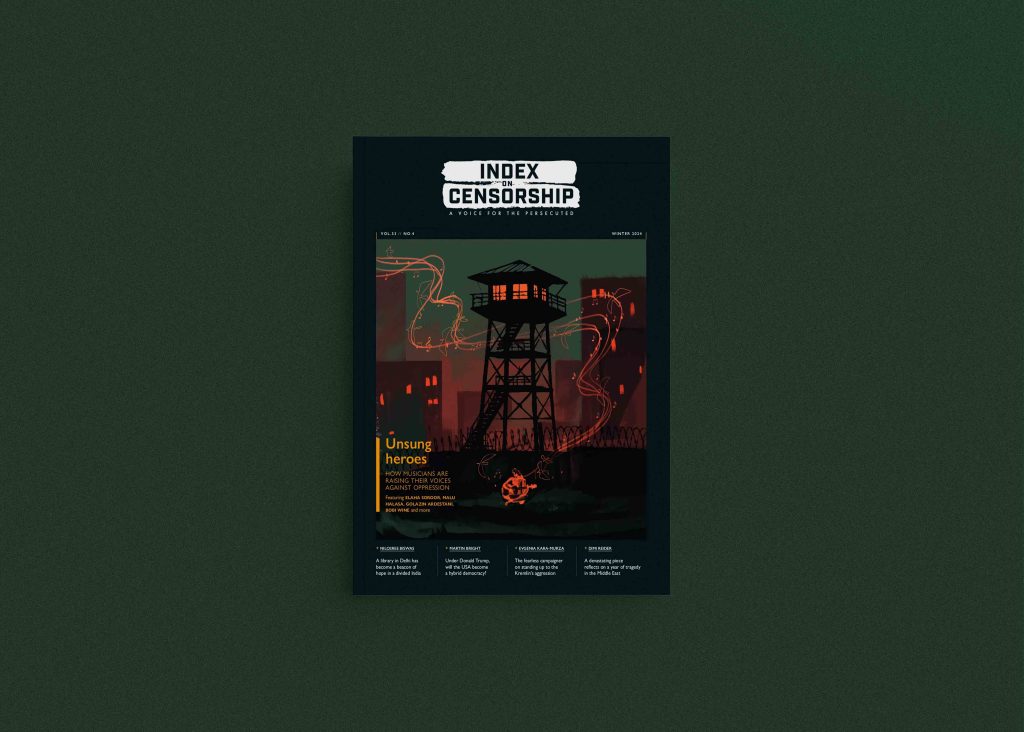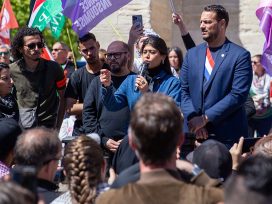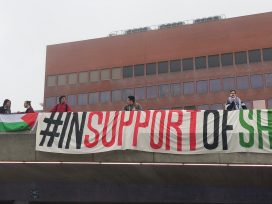‘Despite its universality, music is being silenced globally’, writes Index on Censorship’s editor-in-chief Sarah Dawood in her introduction to the journal’s current issue. Titled ‘Unsung Heroes’, it explores how forces such as nationalism and religious extremism are targeting the performance and recording of music around the world, as well as restricting the ability of citizens to listen to music freely.
The issue also looks at how musicians and their supporters are taking a stand against oppression, from exiled Afghan and Cuban singers to a British barrister-turned-activist championing UK drill artists.

The Taliban’s war on music
The most dangerous place to be a musician right now is Afghanistan, where the Taliban have been tightening cultural censorship since regaining control in 2021 following the US withdrawal, writes Dawood in a feature entitled ‘The sound of silence’.
‘Musicians in the country live in fear of discrimination, humiliation, torture, imprisonment, sexual violence in the case of women, and even death’, she reports. A prohibition on the performance and broadcast of all kinds of music is part of new ‘vice and virtue’ laws that have been condemned by human rights groups and the UN.
The ban on what the Taliban claims to be the ‘moral corruption’ of music is threatening the livelihoods of musicians and academics across Afghanistan; many have been forced out of their jobs and even into exile. The musical heritage of the country is now under threat. According to its own figures, the Taliban have ‘destroyed more than 21,000 musical instruments over the past year’, including the national instrument, the rubab.
The situation is most perilous for female musicians, whose rights are being comprehensively abused by a patriarchal leadership whose ideology is built upon gender discrimination. Many have gone into hiding to escape persecution from the government and male members of their community.
Dawood reports on initiatives being developed by exiled musicians and friends of Afghanistan to ‘keep the flame alive’. ‘There is a real risk that the rich musical heritage of the country will be forever silenced if the world doesn’t continue to campaign for its right to exist.’
Performers in peril
In Turkey, musicians, performers and DJs are being targeted for their ethnic background, their political views or just the music they play, writes Kaya Genç in a piece entitled ‘Murdered for music’.
Describing ‘a pattern of animosity and violence against Turkey’s musicians over the past half-decade’, Genç presents a list of cases that illustrate the growing risks of picking up an instrument and playing in public. These range from the cancellation of concerts to harassment and even murder of live performers.
While musicians performing to large crowds face censorship or physical assault, street musicians are at even greater risk, as demonstrated by the killing of Kurdish busker Cihan Aymaz by a passer-by in 2023. Aymaz had refused to sing a nationalistic Turkish song.
Violence against musicians in Turkey is ‘part of a broader culture war in the country’, writes Genç, adding that this has placed additional strain on a sector already hard hit by bans on late-night performances during the COVID-19 pandemic. He describes a newfound solidarity between Turkish musicians as ‘the silver lining of the latest wave of violence’.
Rap vs. the revolution
Coco Fusco reports on the situation in Cuba, where ‘dozens of musicians have left the country as repressive measures against cultural producers continue to escalate’. Since mass anti-government protests in 2021, the authorities have waged a brutal campaign against dissidents, banning criticism on social media and barring independent studios and concert venues from registering as small businesses. A number of Cuban rappers and reggaeton artists have been jailed.
In Cuba, writes Fusco, music’s ‘potential impact as a vehicle for political messages is perceived by authorities as a threat to state control of public discourse and, ultimately, to government stability’. The government is targeting rap and reggaeton, which have ‘evolved outside state channels’ and have been used to express popular discontent.
The crackdown echoes the repressions of the 1960s–1990s, when musicians who were critical of the regime or openly embraced western styles were ostracized, forcing many into exile. Some of the latest wave of exiles have now recorded a rap song criticizing the government for attacking the arts.
Demonizing drill
Mackenzie Argent shines a spotlight on the controversies surrounding the UK’s drill scene. Drill is a sub-genre of rap that has attracted the attention of London’s police for its associations with gang culture. But in many cases drill artists are being unfairly accused of incitement to violence and forced to censor their own work, she reports, referring to a landmark 2019 case in which a drill duo were given a jail sentence for performing a song.
‘The moral panic surrounding drill music means it has become common practice for lyrics to be used in court as evidence of criminal activity amongst drill artists. Rapping about crime and violence is often seen as an admission of guilt rather than musical storytelling’, writes Argent. She says there is an argument to be made that drill musicians are being singled out for censure – which in the view of one lawyer amounts to systemic racism.
Former barrister Shereener Browne, who has founded a campaign group to fight against the criminalization of drill, believes that the police campaign against gang violence has become ‘a concerted effort to silence drill artists, and young Black men in particular’. Browne’s project aims to alter the perception of drill, ‘from a violent and dangerous genre to a form of therapy and creative expression’.
Read more about the issue on Index on Censorship’s website
Review by Alastair Gill







